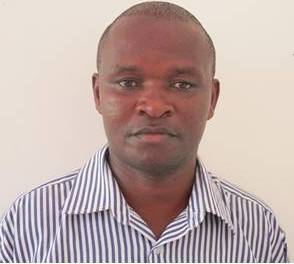

Dr. Collins Mweresa
Chairperson of Department
The Department of Biological Sciences is the one of largest and one of the most diverse on campus in terms of the research interests of its academic staff. This diversity has resulted in numerous collaborations among Principle Investigators as they discover common themes and approaches within their research programs. The Department currently has over 4 professors, 2 Senior Lecturers, 7 Lecturers, along with a graduate student population of nearly 100 and 6 departmental support staff. All the academic staff in the Department have PhDs and grant funding.
Research
Research in our department spans a wide range of themes in biology, including:
- Ecology and Biodiversity
- Entomology
- Plant taxonomy and economic botany
- Genomics
- Immunology and Infection
- Marine Biology
- Microbiology
- Medicinal Plants research
- Molecular and Cellular Genetics
- Physiology and Development
- Plant Biology
This size and breadth of research interests has allowed the Department to build world-class facilities that would be difficult to maintain by a smaller unit.
Our Undergraduate Program
The Department of Biological Sciences offers more than 130 courses to undergraduate students. Our programs provide students with a breadth of knowledge across biological and related fields. We emphasize experiential learning through substantive offerings of lab courses, independent research opportunities and field courses. Interested students can pursue specialization program within the department in three areas of concentration: (1) Ecology, Taxonomy, Evolution, Fisheries, aquatic sciences and Environmental Biology, (2) Integrative Physiology, Biochemistry and plant pathology, and, (3) Molecular, Cellular, parasitology and microbiology.
Why choose Biological Sciences?
Biologists ask questions such as: How does an ecosystem remain productive? In what ways do fungi adapt to their environments? How do single-celled organisms lead their lives? Cellular, Molecular and Microbial Biologists ask questions such as: How do cells of bacteria, plants and animals’ function? How do cellular processes influence our lives? Can the genes from one organism be transferred into another to prevent or treat diseases?
From biomolecules to the biosphere, the Biological Sciences consider life in all forms. As the most broadly based Biological Sciences program, this degree will provide you with a marketable set of transferrable skills upon graduation. During the course of your studies, much of your learning will occur while actively working on problems in class, during tutorials, and in the laboratory. The student will get a broad perspective on diverse topics including the function of molecules in cells, the relationships between cell structure and cell function, the importance of microbes to the environment, industry and disease and the interactions of microbes with each other and with plant and animal cells. This program allows students to study the processes that determine the distribution and abundance of plants, animals and microbes in natural and human-modified environments. Students also learn the principles that underlie the structure and function of ecological systems and mechanisms responsible for the diversity of life on our planet. It also introduces students to structure (morphology), function (physiology) and relatedness (systematics) among different groups of animals. Advanced courses provide a broad perspective on comparative and integrative animal biology. You will also have access to expert researchers and faculty members, state-of-the-art laboratories and classroom technology, and exceptional teaching and learning resources. The best part is that you can do all of this in one of the most vibrant, dynamic and culturally diverse University in Kenya. Therefore, “Pursue your passion” with us.
Career opportunities
Biologists have career opportunities in areas such as environmental management and conservation, heritage centers, scientific research, food industry, biotechnology, and more. A degree in Biological Sciences can be used as a stepping-stone to graduate studies or to another professional degree such as dentistry, medicine, veterinary medicine, or education.

